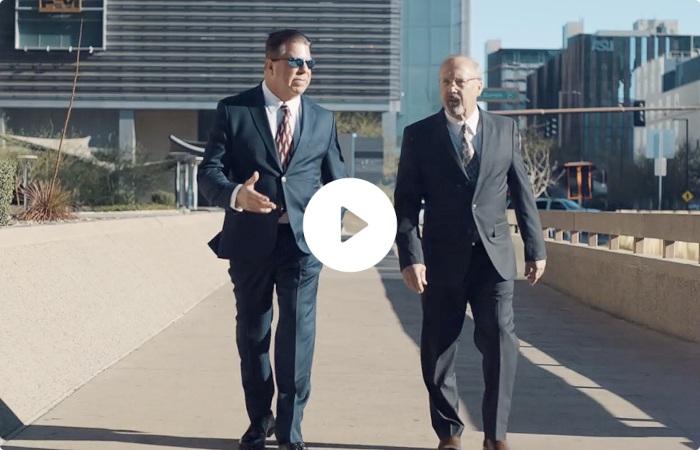
Cerebral palsy, or CP, is not just one condition. It is actually a group of disorders that cause issues with movement, posture, and balance. According to the Centers for Disease Control and Prevention, cerebral palsy is the most common movement and motor disability in children, and it affects as many as four out of every 1,000 children. The majority of CP cases involve spastic cerebral palsy, which affects muscle tone. Conditions such as epilepsy commonly co-occur with cerebral palsy.

Although cerebral palsy can occur naturally, it is sometimes caused by doctor negligence, so you may want to speak to a Texas cerebral palsy lawyer for guidance on how to determine fault, damages, and any compensation that you may be entitled to.
Negligence and Your Child’s Cerebral Palsy
Brain damage causes cerebral palsy, but many different factors can cause or trigger brain damage. As a result, it can be difficult to determine the exact cause of a particular patient’s cerebral palsy. Some of the factors that can contribute to a cerebral palsy diagnosis include:
- Abnormal brain growth during gestation
- Maternal illnesses or infections during pregnancy
- Blood flow issues in the baby’s brain
- Genetic disorders or gene mutations
- Toxins or drugs ingested during pregnancy
- Physical damage or injury to the baby’s head or skull during birth
- Complications related to multiple births or premature delivery
Some parents wonder if their child’s doctor or care team could have been responsible for their child’s cerebral palsy. The short answer is yes, but it depends on how, when, and why the damage that led to cerebral palsy occurred. Medical errors during the mother’s pregnancy or childbirth can cause cerebral palsy, but some errors are not negligent since they could not have been prevented.
However, other errors may be considered malpractice, including:
- Treatments that deprive the baby of oxygen during delivery.
- The excessive use of force to extract the baby from the mother.
- A failure to perform a C-section or identify causes of fetal distress that may require a C-section.
- Failures in monitoring important health indicators in the mother and the baby.
- Ignoring, missing, or misreading test results or misdiagnosing health issues in the mother or the baby.
A College Station cerebral palsy lawyer can help you determine who on the medical team, if anyone, can be held responsible for preventable birth errors that led to brain damage and cerebral palsy. Contact the Birth Injury Lawyers Group to learn about the next steps to take. Call (800) 222-9529 today.
"If your child was born with a birth injury, or cerebral palsy, we can help."
Identifying Cerebral Palsy
To determine whether or not your child has cerebral palsy, your doctor should recognize signs that may indicate the condition. These include:
- Missing key development milestones that require specific motor skills such as holding the head up, sitting, crawling, walking, and rolling over.
- Limbs that are either too stiff or too floppy.
- If the child highly favors using one side of the body over the other.
- If the baby scoots on his or her bottom rather than crawling.
- If a toddler is unable to stand even with some support.
You should immediately speak with your child’s doctor if you notice any of these symptoms, even if you are unsure about their causes. Early intervention is important with cerebral palsy. You should also speak to a lawyer to gather evidence regarding your child’s birth if he or she underwent an emergency delivery or may have suffered a birth injury.
College Station Cerebral Palsy Lawyer Near Me (800) 222-9529
Diagnosing Cerebral Palsy
There is no single test that can definitively determine the presence or absence of cerebral palsy. Many tests and screenings may be required to accurately assess a child’s condition and to determine whether or not he or she has suffered the kind of brain damage that can lead to cerebral palsy.
Your doctor may recommend specialist intervention if he or she suspects that your child does, in fact, have issues with motor skills, muscle tone, coordination, or balance so that you can take the next steps in treating your child based on the results of the diagnostic tests.
"We know first-hand what you are going through."
Treatment and Prevention
Treatments for cerebral palsy usually involve a combination of physical, occupational, speech, and other therapies. Medications to reduce shaking or seizures and surgery to repair damaged bones or muscles may also be required to help the affected individual overcome and cope with cerebral palsy symptoms.
In terms of prevention, there is no surefire way to prevent a child from developing cerebral palsy, but you can help lower the chances that your child develops it by:
- Undergoing regular prenatal tests and ensuring that any latent or preexisting medical issues in the mother, such as diabetes, are properly managed.
- Screening yourself for the different causes of potential complications.
- Educating yourself about how and why cerebral palsy develops and vigilantly safeguarding your physical and emotional health and openly communicating any issues or concerns you may have with your doctor.
"Our Birth Injury Lawyers have recovered over $750+ Million on behalf of our clients."
Important Next Steps
If your child recently received a cerebral palsy diagnosis, we recommend doing the following:
- Keep a record of all expenses.
- Seek a second opinion on your child’s illness.
- Do not accept compensation until you speak to a lawyer.
- Follow all treatment recommendations from your child’s doctor.
The Birth Injury Lawyers Group can help you during this difficult time. Call us today at (800) 222-9529 for a free case evaluation. We can discuss your case and your rights and responsibilities and determine whether or not you have the grounds needed to file a malpractice claim against a doctor or hospital.
Time is of the essence, and statutes of limitation apply, so call our College Station cerebral palsy lawyer team to learn more today.
"We are committed to helping families who have suffered medical negligence."
